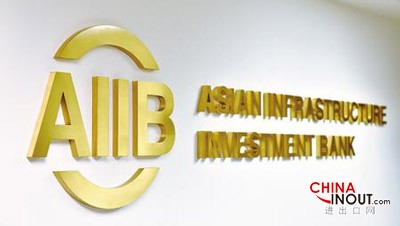由中国倡议设立的亚洲基础设施投资银行(AIIB),是现有国际金融体系的一个补充,于星期五(12月25日)在北京正式成立,预计明年初开始运作。
中国财政部部长楼继伟说,“《亚投行协定》今天生效,标志着亚洲基础设施投资银行(以下简称亚投行)今天正式成立。”
《亚投行协定》概述了每个创始成员国的财政份额以及决策机制、支配结构、业务运营等规则。星期五,17个创始成员国的立法机构提交了协定的批准书,且它们的股份总和占比达50.1%,《亚投行协定》即告生效。
楼部长表示,这是国际经济治理体系改革进程中具有里程碑意义的重大事件。
据楼部长称,亚投行理事会和董事会成立大会计划于2016年1月16日至18日在北京举行,大会上将选举出亚投行行长和管理团队,之后亚投行将开始运营。
亚投行候任行长金立群在接受新华社记者专访时表示,银行将开始招募新成员,并补充说,亚投行新成员资格将向国际复兴开发银行和亚洲开发银行(ADB)成员开放。
总部设在北京的亚投行,现有57名成员国。中国,印度和俄罗斯是亚投行三个最大的股东,他们股份占比分别是 30.34%,8.52%,和6.66%。他们的基础投票权依次为26.06%,7.5%,和5.92%。
中国财政部副部长史耀斌告诉新华社记者,“中国无意谋求一票否决权。”它的股份和基础投票权比例是据当前协定的相关规则计算的,是其“经济总量使然”,今后随着新成员的加入,比例会相应的稀释。
The China-initiated Asian Infrastructure Investment Bank (AIIB), a complement to existing international financial system, was formally established Friday in Beijing and expected to start operation early next year.
"The AIIB is legally established as the Articles of Agreement take effect today," said Lou Jiwei, China's Minister of Finance.
The Articles of Agreement outlines the financial share of each founding member as well as rules for policymaking, governance structure, and business and operational systems for the bank. It became effective once the legislatures of 17 members, who hold a combined 50.1 percent stake in the bank, ratified the agreement.

The establishment of the AIIB marks a milestone in the reform of global economic governance system, Lou said.
The AIIB will be operational after board of directors and executive council meet for the first time. The meetings are slated to run from Jan. 16 to 18 in Beijing, according to Lou. The bank's president will be officially appointed and the management team will be in place at the meetings.
The bank will start recruiting new members, Jin Liqun, the bank's president-designate, said in an interview with Xinhua, adding that members of the International Bank for Reconstruction and Development and the Asian Development Bank (ADB) could apply to join the AIIB.
The bank, headquartered in Beijing, now has 57 members. China, India and Russia are the three largest shareholders, taking a 30.34 percent, 8.52 percent, 6.66 percent stake, respectively. Their voting shares are calculated at 26.06 percent, 7.5 percent and 5.92 percent.
"China is not deliberately seeking a veto power," its stake and voting share in the initial stage are the "natural outcome" of current rules, and may be diluted as more members join, China's Vice Finance Minister Shi Yaobin said in an interview with Xinhua.